Digital door locks are transforming home security by offering keyless entry and smart access control. Instead of fumbling for keys, a digital door lock lets you unlock your door via a PIN code, fingerprint scan, or even a smartphone app.
These modern locks—often called smart locks or electronic locks—provide convenience without sacrificing security. In this guide, we’ll explore the benefits of digital door locks, their potential drawbacks, and answer common questions to help you decide if this keypad door hardware upgrade is right for your home.
What is a Digital Door Lock?
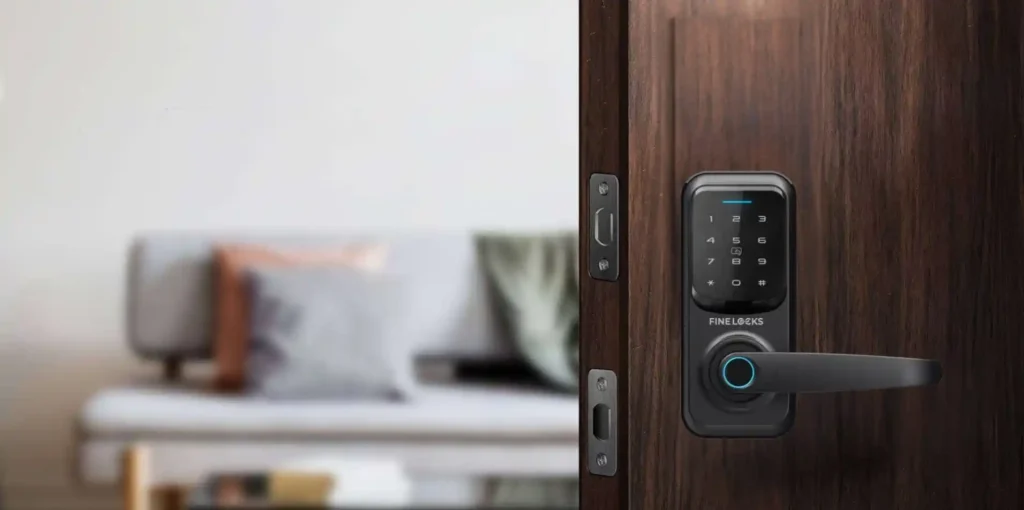
A digital door lock is an advanced locking system that replaces the need for a physical key with electronic authentication methods. It might use a keypad for PIN entry, a biometric sensor (like a fingerprint reader), or wireless connectivity (Bluetooth or Wi-Fi) to grant access.
In essence, digital locks for doors allow keyless entry locks – you can unlock the door with a code or device instead of a traditional key. Many digital door locks also include a standard keyhole as a backup, but day-to-day you’ll rely on the electronic mechanism.
Modern digital door locks often fall under the umbrella of smart locks. This means they can integrate with your smartphone or smart home system for remote control and monitoring.
For example, some locks connect via Bluetooth (no Wi-Fi needed) while others connect to your home Wi-Fi network for remote access. Either way, the goal is to make locking and unlocking your door more convenient without compromising security.
Benefits of Digital Door Locks
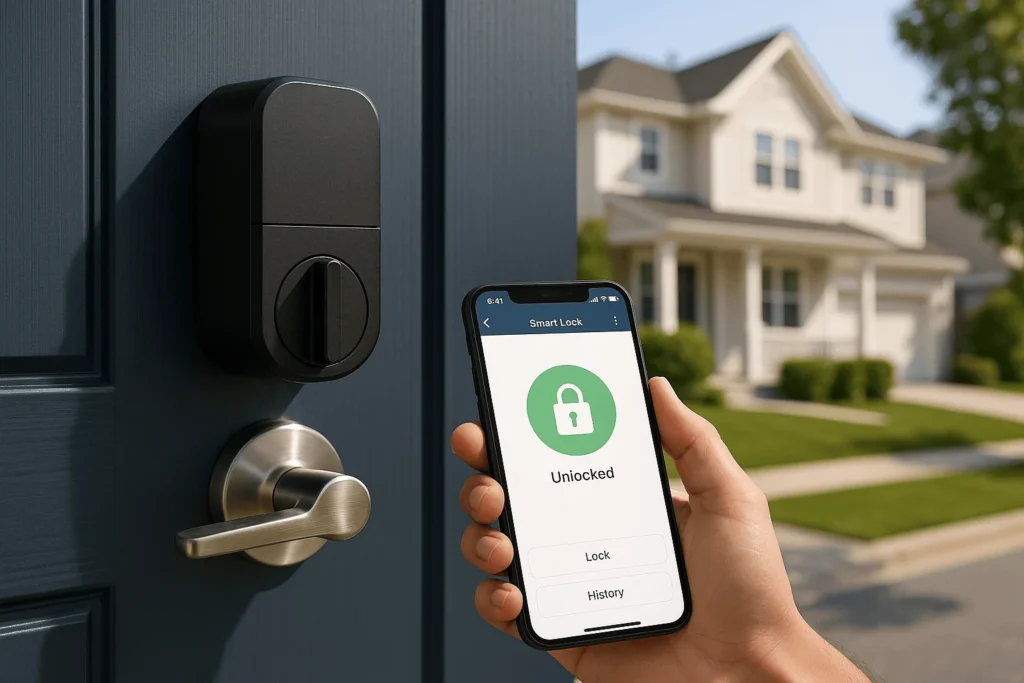
Digital door locks offer numerous advantages over traditional key locks:
- Keyless Convenience: Perhaps the biggest benefit is not needing physical keys. You’ll never be locked out because you lost your keys, and you can easily give family or friends their own access codes instead of making copies of a key. No more hiding spare keys under the doormat!
- Enhanced Security: Quality digital door locks use encryption and authentication technology to prevent unauthorized access. Unlike a traditional lock that can be picked, a digital lock’s encrypted code system is much harder to breach. Many models have features like auto-locking (the door locks itself after being closed) and lockout measures if too many wrong code attempts are made (preventing “guessing” attacks). In fact, entering the wrong PIN too many times will trigger a timeout on many keypad locks, foiling brute-force attempts
- Multiple Access Methods: With digital locks, you can choose how to unlock the door. Options include PIN codes on a keypad, RFID cards, fingerprints, smartphone apps, or even voice commands (if integrated with Alexa/Google Home). You can assign temporary codes to guests or service people that work only during a certain time frame – and then revoke those codes easily. This level of access control is great for Airbnb hosts or anyone who regularly needs to let others in remotely.
- Remote Control & Monitoring: If your digital door lock is Wi-Fi–enabled or connected to a smart home hub, you can lock/unlock your door from anywhere using an app. Imagine being able to unlock the door for a friend while you’re at work. Many smart digital locks also send notifications or keep logs of entries. You can get an alert when your kids arrive home from school or check an activity log to see when and who unlocked the door – providing peace of mind.
- Integration with Smart Home Devices: High-end digital door locks can integrate with other systems in your home. For instance, unlocking your door could also disable your security alarm, turn on lights, or adjust the thermostat as part of a home automation routine. This creates a seamless smart home experience where your door lock works in tandem with cameras, doorbells, and voice assistants.
No More Lost Keys: With a digital lock, the “lost keys” problem disappears. You won’t need to rekey or change your locks if someone misplaces a key – simply change the code or revoke their app access. This not only enhances security but also saves the cost and hassle of calling a locksmith.
What are the Disadvantages of Digital Door Locks?
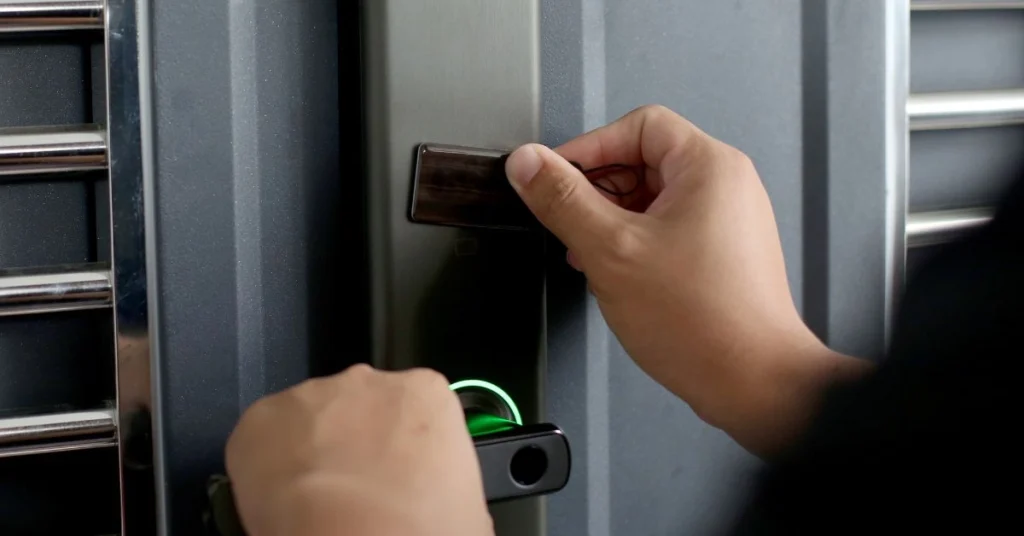
Despite their many benefits, digital door locks also have a few potential drawbacks to consider:
- Higher Cost: Digital or smart locks tend to be more expensive than traditional locks upfront. You’re paying for the technology and convenience. Additionally, if you aren’t a DIY enthusiast, you might need to hire a professional for installation, which adds to the cost.
- Power/Battery Dependency: Since these locks are electronic, they require power. Most run on batteries. This means you have to replace batteries periodically (typically every 6 months to a year, depending on usage). If the batteries die and you haven’t replaced them, you could be locked out – though most locks give plenty of low-battery warnings and some offer emergency power contacts (for example, a 9V battery touchpoint to temporarily power the lock). In case of a power outage in your home (for locks that rely on house electricity or Wi-Fi), the lock itself usually still works on battery backup, but remote features may not work. It’s wise to choose a digital lock that has a physical key backup or emergency power option just in case.
- Learning Curve and Maintenance: There’s a slight learning curve to programming and using a digital door lock, especially for less tech-savvy users. You’ll need to remember codes or have your smartphone handy. Maintenance is also a factor – you should update the lock’s firmware (if applicable) and change batteries as needed. Traditional locks, by contrast, don’t need software updates or battery changes.
- Compatibility and Installation Challenges: Not every digital lock fits every door. If you have an older door or an unusual lock mechanism, some smart locks might not be compatible without modifications. Also, installing a digital lock can be more involved than a simple deadbolt replacement, depending on the model. Some units with keypads and additional sensors may require drilling new holes or fitting additional parts.
- Potential Hacking or Technical Issues: A common concern is, “Can digital door locks be hacked?” In theory, any device with electronics or connectivity can be vulnerable. However, reputable digital locks use strong encryption (often 128-bit or higher) to protect against hacking. The risk of someone digitally hacking your smart lock is very low in practice – most burglars are not tech experts and would rather break a window or pry a door than try to crack an encrypted lock. Still, to stay safe, you should use good practices like setting up a strong master password, keeping the lock’s software updated, and purchasing from trusted brands that prioritize security. Also note that purely keypad-based locks (not connected to the internet) cannot be hacked remotely – there’s no network connection to exploit, though someone could still attempt to guess your code in person.
- Mechanical Failures: Like any device, digital locks can fail. The motor could jam or electronics could glitch (just as mechanical locks can wear out or keys can break). Having a keyed override or a backup plan is important. Choose a lock from a reliable manufacturer and check warranty terms for peace of mind.
Despite these drawbacks, many homeowners feel the advantages outweigh the inconveniences, especially with proper maintenance and a good quality product.
Conclusion
A digital door lock is a smart and convenient way to secure your home or office. They remove the hassle of keys, give you more control, and add features like remote access and auto-locking. While they cost more and need battery care, the benefits often outweigh the downsides.
If you want simple code access or advanced smart features, there’s a digital lock door solution that fits your lifestyle. Going keyless means more convenience, better safety, and peace of mind every time you walk through your door.
Frequently Asked Question(FAQs)
Which digital lock brand is best?
Brands like Schlage, Yale, August, Kwikset, and Samsung are popular. The best choice depends on your needs, whether you want simple keypad entry or full smart home features.
How much does it cost to install a digital door lock?
Basic models start around $100, while advanced smart locks can be $200–$500 or more. Professional installation can bring the total to about $250–$400 on average.
Do digital door locks work when the power goes out?
Yes. Most locks are battery-powered, so they work fine during power cuts. Only the remote Wi-Fi features may stop until power returns.
Are digital door locks safe for the main door?
Yes. Good-quality locks are very safe and harder to tamper with compared to regular locks. Just make sure to pick a trusted brand and keep your codes strong.
Are digital locks hackable?
In theory, yes. But high-quality locks use strong encryption, so hacking is very rare. Most burglars prefer breaking a window instead of trying to hack a lock.
How long do digital locks last?
On average, 5–10 years, depending on usage and maintenance. Replacing batteries and keeping the lock clean helps extend its life.
Do digital locks need Wi-Fi?
Not always. Some use Bluetooth or just a keypad, which work without Wi-Fi. Wi-Fi is only needed for remote features like unlocking from your phone when you’re away.
How do you change a digital lock code?
You enter programming mode on the keypad or use the lock’s mobile app. Always choose a strong code and test it before locking the door.

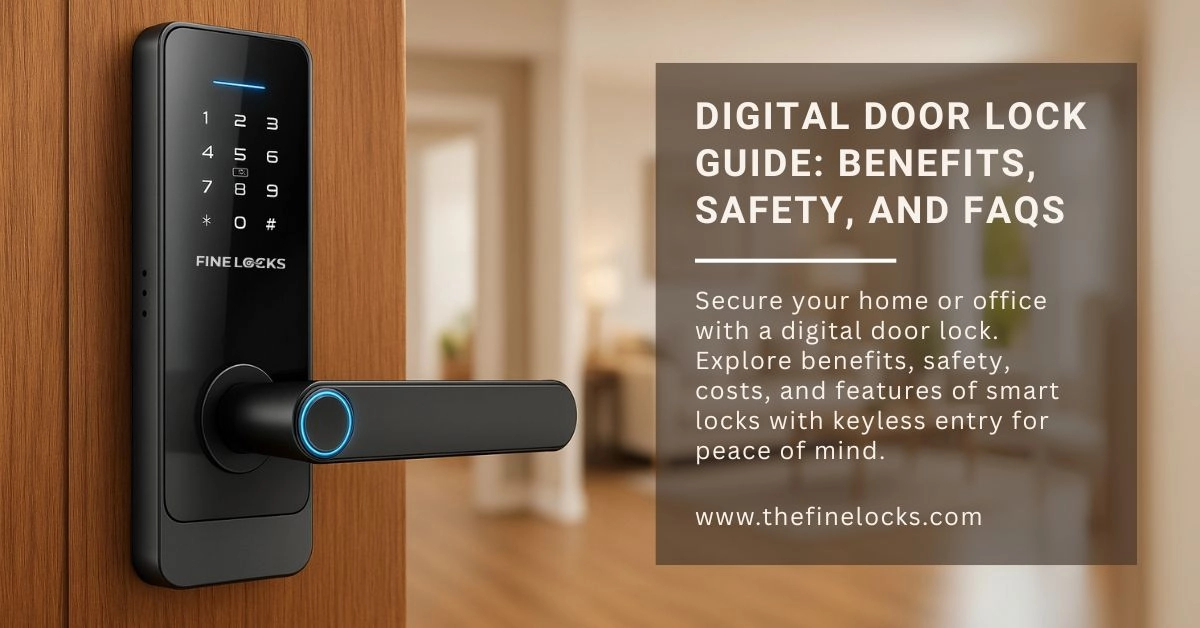
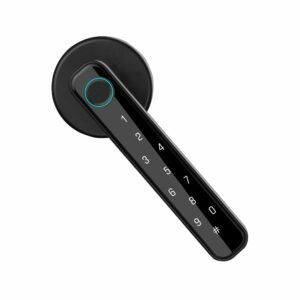
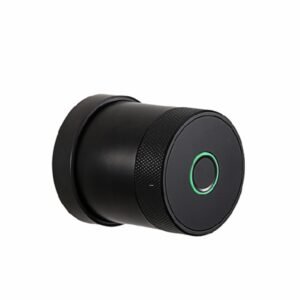
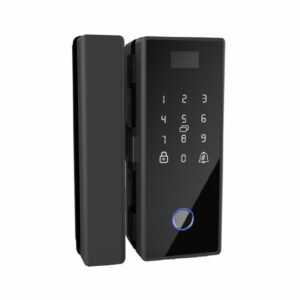
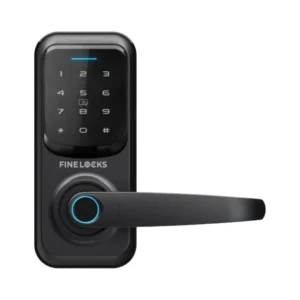
0 Comments